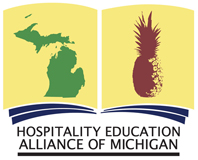Start Date
2011 12:00 AM
Description
Young adults, including university students, are more likely than other groups to engage in risky alcohol consumption. Employees at hospitality establishments and students at hospitality programs have been found to engage in heavy drinking. Excessive alcohol consumption has been linked to serious illness, cognitive difficulties, risky behaviors and sexual dysfunction. High levels of alcohol consumption, high rates of liver cirrhosis, elevated risk of alcohol-associated cancer and high prevalence of alcoholism have been found among restaurant employees. Research has started to explore some of the antecedent conditions and influences that may lead to high levels of alcohol consumption. Initial findings suggest that social modeling, subjective and group norms, personality variables, structural elements of the work place, and living conditions may be associated with alcohol consumption, while work-place stress appears not related to alcohol consumption (Borchgrevink, Borchgrevink, & Sciarini, in review; Borchgrevink, Sciarini, & Borchgrevink, 2010; Kjærheim et al., 1995; Kjærheim, Mykletun, & Haldorsen, 1996; Larsen, 1994; Larsen & Jørgensen, 2003.) Research also suggests that personality variables, such as extroversion and neuroticism, which are found to be predictive of alcohol consumption (Cook, Young, Taylor & Bedford, 1998), are also associated with hospitality as occupational choice (Teng, 2008).
Alcohol Consumption Among Hospitality and Nonhospitality Majors: Is it an Issue of Personality
Young adults, including university students, are more likely than other groups to engage in risky alcohol consumption. Employees at hospitality establishments and students at hospitality programs have been found to engage in heavy drinking. Excessive alcohol consumption has been linked to serious illness, cognitive difficulties, risky behaviors and sexual dysfunction. High levels of alcohol consumption, high rates of liver cirrhosis, elevated risk of alcohol-associated cancer and high prevalence of alcoholism have been found among restaurant employees. Research has started to explore some of the antecedent conditions and influences that may lead to high levels of alcohol consumption. Initial findings suggest that social modeling, subjective and group norms, personality variables, structural elements of the work place, and living conditions may be associated with alcohol consumption, while work-place stress appears not related to alcohol consumption (Borchgrevink, Borchgrevink, & Sciarini, in review; Borchgrevink, Sciarini, & Borchgrevink, 2010; Kjærheim et al., 1995; Kjærheim, Mykletun, & Haldorsen, 1996; Larsen, 1994; Larsen & Jørgensen, 2003.) Research also suggests that personality variables, such as extroversion and neuroticism, which are found to be predictive of alcohol consumption (Cook, Young, Taylor & Bedford, 1998), are also associated with hospitality as occupational choice (Teng, 2008).
